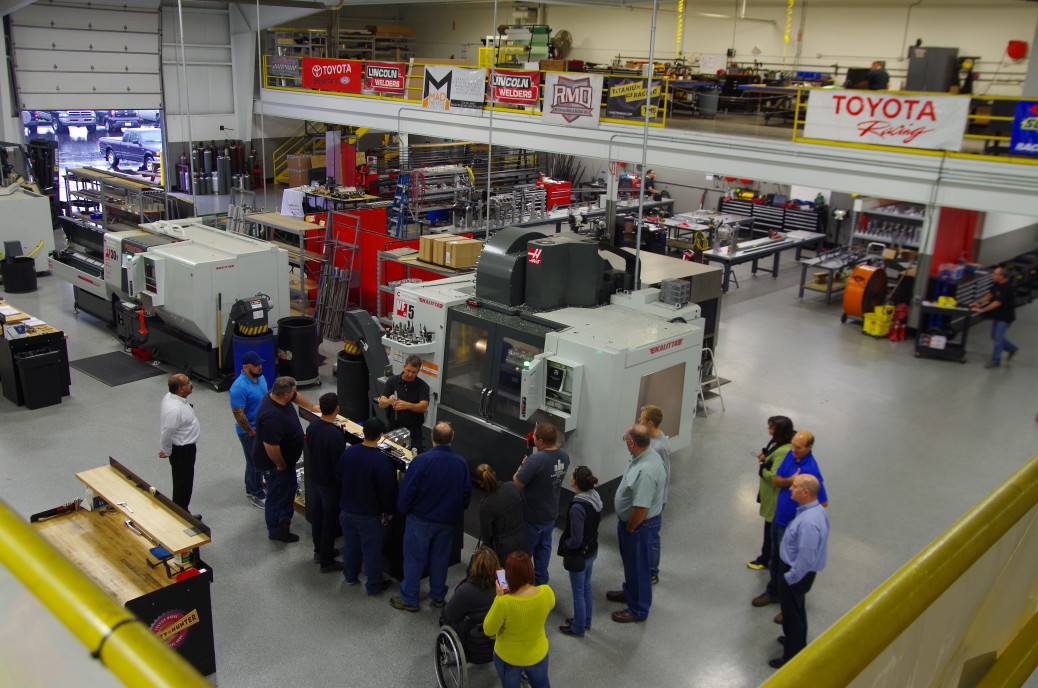
Computer Numerical Control (CNC) machining involves using technical equipment to automatically machine materials into products, parts or prototypes. It is a form of subtractive manufacturing that has become a popular method in making precision parts for the aerospace, automotive, power and other technical industries.
The materials used are typically metal, wood, plastics and composites, which are worked on with CNC tools such as cutters, drills, lathes, presses and wire EDM (electrical discharge machining).
This article will give you a brief overview of the important role of a CNC machinist and the skills required to excel at the job.
The role of a CNC machine operator
The main tasks of a CNC machinist are:
- Interpreting the technical drawings and data
- Programming the code for the CNC machine tool from the data or setting up the automated software to generate the code
- Sequencing the machining tasks in the correct order
- Selecting and checking the appropriate machine tools
- Setting machine parameters such as cutting speeds and the allowable tolerances
- Operating the CNC computer and machine
- Inspecting the quality of the finished product against industry standards
- Rectifying any faults with the end product
- Calibrating and maintaining the equipment
The average salary of a CNC machinist in the US at the time of writing is $42,188, according to Glassdoor. The US Bureau of Labor statistics predicted a 17% growth between 2014 and 2024, which is considerably above the national average.
The top 5 skills required to become an expert at CNC machining
1. Attention to detail
CNC operators need to follow and interpret 2D engineering drawings, being able to visualize how the item will look in 3D to help them decide the order of machining. Also, the designers and engineers often produce written instructions that the operator must follow closely. Operators must be able to ascertain and prioritize the important features of the design and make sure that they are machined carefully.
A good operator will have, or develop, a good eye for detail and make sure that everything is set up correctly and accurately.
2. IT and math skills
The job requires the use of Computer Aided Manufacturing (CAM) software (such as Autodesk CAM), and therefore requires good IT skills. The software and tools will be updated regularly, so the operator needs to update their knowledge regularly.
They also need math skills to understand and check dimensions, set out the materials, set the design parameters in the software and check tolerances, etc.
3. Practical skills
Practical engineering skills are desirable, especially mechanical engineering, as the operator needs to develop a good understanding of how the machinery works. They will usually be required to calibrate and maintain the machines and tools.
4. Problem-solving
All technical equipment goes wrong from time to time. A CNC operator will inevitably face this and other problems that need solving, such as inconsistent design drawings, end product being out of tolerance, problems with the materials, etc. When these problems arise, the operator needs to have a can-do attitude and try to rectify the problem.
5. A desire to become an expert
A desire to become a CNC machining expert ties together all of the skills mentioned previously. CNC machining is a highly technical craft, which requires a combination of skills and engineering knowledge. Good operators must be willing to constantly learn and update their knowledge, as the technology changes quickly.
Companies such as Autodesk are constantly innovating new software solutions to integrate CNC processes that will need to be mastered. New equipment and more advanced machine tools also require the operator to stay abreast of the technology.
The future of CNC machine operating
It’s easy to assume that CNC machine operating will require less and less skill as technology advances and automation and AI take over. This is not necessarily true. As the software and equipment become more technical, more sophisticated operators will be required, especially to rectify problems and perform maintenance tasks.
As processes integrate and the workflow between design and final fabrication becomes smoother, operators will be expected to be competent in every stage of the production process, not just the computer and machine-operating stage.



Add comment
Connect with: Log in
There are no comments